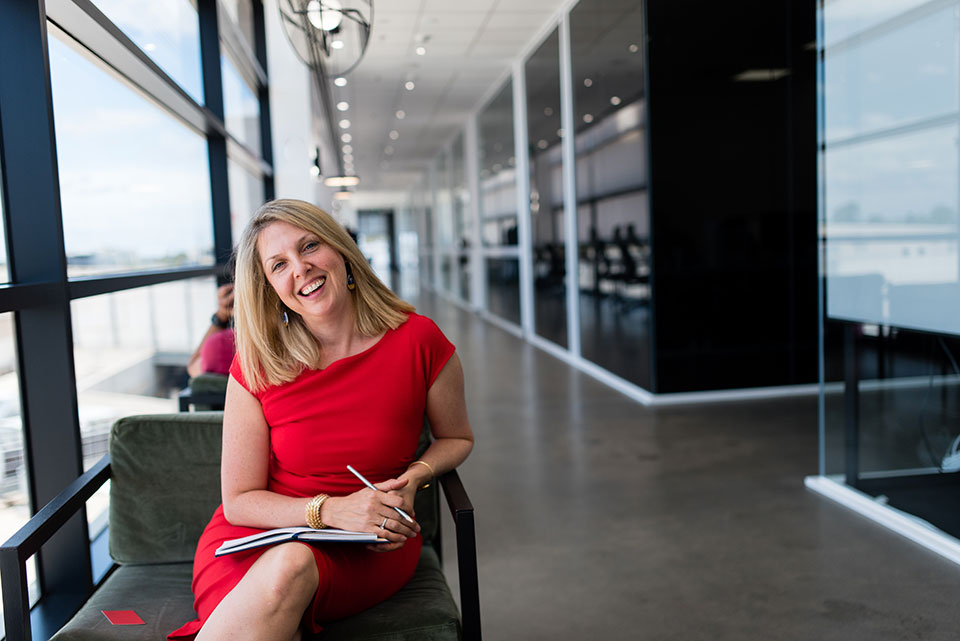How to lead a courageous team

The intelligence of a team, as opposed to the intelligence of the individuals in the team, is called our collective intelligence. The average intelligence of the people in the team is not indicative of what we can do together. A low functioning team is one where the collective intelligence is low, the individuals do not perform well together.
It may be that any of the individuals themselves become less able to contribute just by being in the presence of the team, or that together they actually make each other worse. In my experience, this is demonstrated in the connection between the individuals and the culture of the conversations within it. In teams where there is fear guiding the connections and the conversations we see one of two patterns:
1 ) Avoidance. When people are being dominated by fear and they pull back from what needs to be said, decided or acted on. We put our head in the sand and avoid anything uncomfortable. Unfortunately that means we do not speak up, show up, point out mistakes, bring new ideas or have constructive conversations.
2) Arc up. When people are being dominated by fear we see a disproportionate amount of defensiveness or even attacking. We see barriers to connection, not being able to trust and create the type of relationships which allow for deeper and more uncomfortable but necessary conversations. We see people’s anger, irritation and frustration which can look like eye rolling, hand gestures to block someone talking, talking over each other, not inviting each other to give opinions, talking about each other not to each other and generally creating conflict rather than compassion.
Although the two behavioural types look different, they all stem from not being able to control our fear. Ultimately, they are traits of a cowardly team.
Leading courageous teams
Conversely a courageous team is able to manage their fear individually and collectively. When we can manage our fear (rather than going into avoidance or arcing up), our conversations are courageous, the compassion is courageous, the decisions are courageous and the actions are courageous: we get high collective intelligence. Courageous teams do not feel less fear than cowardly ones, they just manage it differently. If you would like to lead a courageous team here are my top tips.
Recognise that fear is present, for me, you and for us. This is tough for most of us to acknowledge, but that doesn’t make a difference to fear, it will show up anyway. We must get to a position where we recognise when it shows up, how it appears and what to do with it when it does. Only by acknowledging the impact on our connection and communication can we truly start to unpick its power over us.
Role model the conversation you are having with your fear outloud and locate the tension between your fear voice and your goals. For example “My fear wants me to pretend that I understand this concept, but I think it is important for me to ask more questions”, or “My fear voice is saying you are trying to succeed at my cost, but I think we should talk more about this so we both succeed in this for the good of our team”; or “My fear says, let’s carry on as things are and not bring in new ways, but my thinking is that it is worth exploring how we could change or create in order to make ourselves more sustainable”.
By normalising the internal ways in which fear is trying to control us, we normalise other people’s experience of fear and thus get more comfortable with creating outward conversations that are higher functioning, create connection and deeper trust which enables everyone to do their best.
Get comfortable talking about fears. One of the not so good ways we try to manage our fear is to deny it both to ourselves and to others. This just feeds our insecurities or fears, we become fearful of fear itself.
Fear grows inside us and yet is hidden from others (so we end up feeling like an imposter, not matching the image we put out to others) or hidden from ourselves which ultimately means we move into a reactive space not understanding the reasons we do things or blaming others for the way we behave (externalising the control we have rather than seeing it as internal).
A more useful space for us to get to is to move into acceptance, knowing that by creating a comfort level to discuss questions such as “what is the risk here?”; “what does fear want to make me/us do?”, “what is frightening about this?”, “if we weren’t worried, what would we do now?”, “What does courage look like in this?” are good questions to ask of ourselves and in team meetings to really understand how fear is getting involved in our decisions.
By facing into our fears we gain more control over them so they don’t control our behaviour. Being courageous means we can have courageous conversations, create action over indecision, and move into the unknown. The courageous team is the high performing team with strong collective intelligence.
Written by Dr. Amy Silver.
Add CEOWORLD magazine to your Google News feed.
Follow CEOWORLD magazine headlines on: Google News, LinkedIn, Twitter, and Facebook.
This report/news/ranking/statistics has been prepared only for general guidance on matters of interest and does not constitute professional advice. You should not act upon the information contained in this publication without obtaining specific professional advice. No representation or warranty (express or implied) is given as to the accuracy or completeness of the information contained in this publication, and, to the extent permitted by law, CEOWORLD magazine does not accept or assume any liability, responsibility or duty of care for any consequences of you or anyone else acting, or refraining to act, in reliance on the information contained in this publication or for any decision based on it.
Copyright 2024 The CEOWORLD magazine. All rights reserved. This material (and any extract from it) must not be copied, redistributed or placed on any website, without CEOWORLD magazine' prior written consent. For media queries, please contact: info@ceoworld.biz
SUBSCRIBE NEWSLETTER








